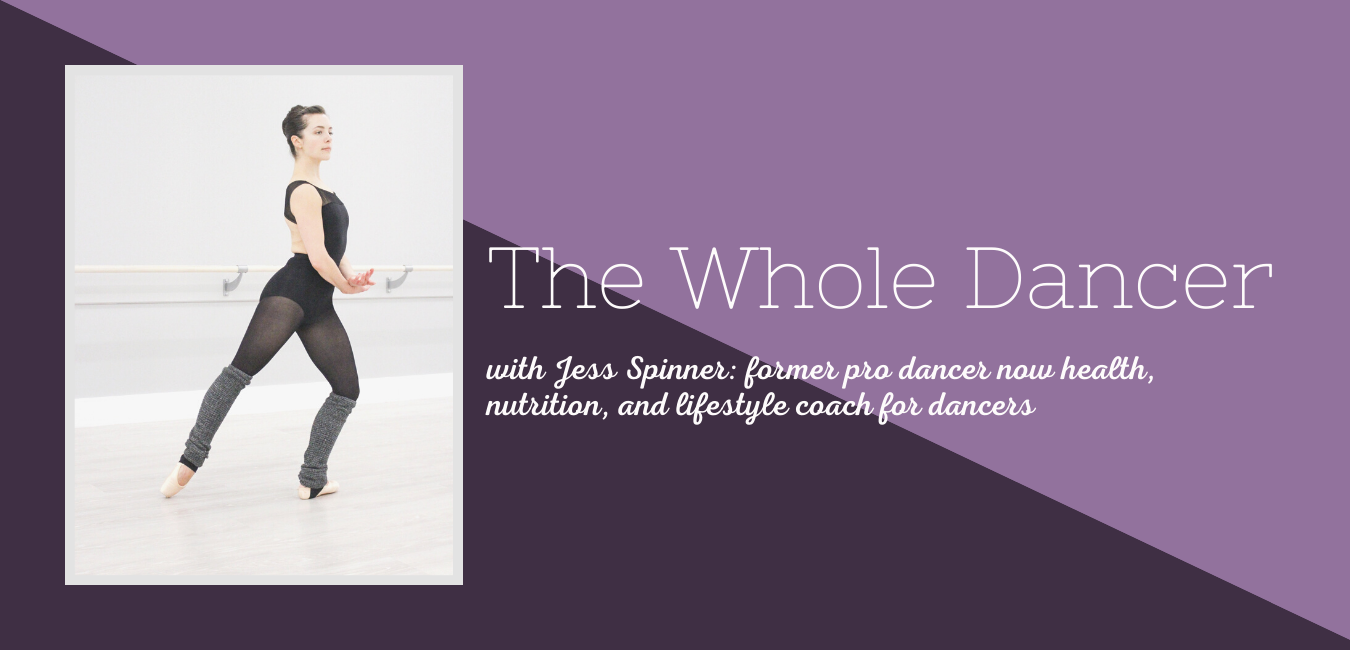Overcoming the comments holding you back…
Mindset for Dancers
Most professional dancers can think back to one offhand comment from that they’ve internalized and allowed to affect way too much of their dancing careers and psyche.
For me, there are a couple that stand out. One when I was at the tender age of 14. The other was during my second year in a professional company at age 23.
At 14, I had just returned from my first summer program away. As I was going through puberty — I had gained some weight. I really wasn’t aware of it until I was sitting next to my ballet teacher one day; she patted me on the thigh and said, “That wasn’t there before.”
In my 14-year-old mind, this was a clear indication that I needed to lose weight. I started a diet immediately. My mother was always very into the low-fat trend, so I decided I wouldn’t eat any food with more than 3g of fat.
I lost weight and became totally obsessed with the number on the scale. I weighed myself daily and soon started checking my weight more than once a day. It was completely unhealthy and totally disordered. I carried these practices with me through college and into my first professional job.
My weight fluctuated over the years, but in my mind, my thighs would always be too big.
I hope that most teachers don’t make comments like this, but I have heard many stories suggesting that too many do. Young dancers have very fragile minds, and whether you think so or not, they are likely astutely aware of what’s “wrong” with their bodies for ballet.
I allowed that one comment to affect a LOT of my life for a long time. Too long.
Somehow, I was able to push through all of that self-loathing and doubt and actually get a job in a professional company, even though confidence was always a HUGE issue for me. I don’t think it’s possible to be truly confident when your self-talk is so critical and negative.
While in the company, I started to think I was holding my own. I was working harder than I ever had before and getting positive feedback, so I knew the artistic staff was taking notice.
Then, during a layoff in an optional company class, the teacher made a totally offhand comment about my arms being short. This was news to me. No one had ever commented on the length of my arms before, and since this is a physical “flaw” and clearly something I could do nothing about, I got into a major comparison game over it.
How can you dance freely if you’re totally preoccupied with your legs AND your arms and noticing how much thinner, longer, and more beautiful everyone else’s limbs are?
Short answer: You can’t.
I didn’t last much longer after that. I did some freelance work in Boston but got injured shortly thereafter and stopped dancing altogether.
So let’s talk about mindset.
It’s one of the most important things dancers should work on and something most struggle with in one way or another. During the hard times, you can come back to these strategies to support a resilient mindset:
1.Remember how far you’ve come. There was likely a time when you were pretty terrible at ballet. You were 8 or 9 and you thought you were great, but you had a long way to go. Appreciate all the time, hard work, and dedication you have put into this art form over the years.
2. Replace negative thoughts with neutral thoughts and then positive ones. If you’re constructively criticizing yourself, that’s OK. We are all working to improve our technique and dancing abilities. However, if you have negative thoughts like “my thighs are huge” (been there, thought that), replace the sentiment with “my legs are strong and allow me to dance” — which leads me to…
3. Find gratitude. When you’re struggling in class, rehearsals, or life in general, remembering all that you have can make a huge difference in mindset. Each day write down 2-3 things you’re grateful for. If you’re struggling with your body or abilities or casting, focus on those things (e.g., I am thankful for every opportunity I have to be on stage).
4. Set goals. This shifts the focus away from any gloomy thoughts that may be coming up. When you set a goal, it’s important to break it down into its smallest components. Then you’re able to celebrate each small victory.
5. Identify the stories or comments that have led you to a difficult or doubtful place and continually discredit them. Find ways to make them constructive and encouraging.
With my examples above, my arms may be short but I can work on using them in ways that elongate their line. As for my thighs, I’m now at a place where I think they’re beautiful anyway, but I’m also hyperextended so I can focus on making my legs super strong to support that desirable attribute.
Find your positives and work on your confidence. A confident dancer is spectacular to watch — and you can get there. Cultivate an optimistic mindset and self-love and (I’ll be totally cliché here) dance like nobody’s watching.
Resources for Dance Teachers:

